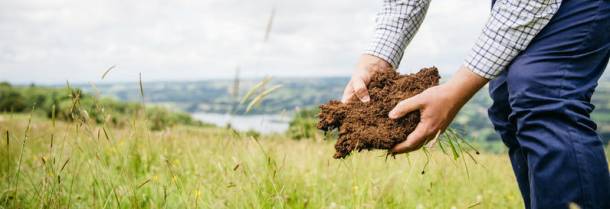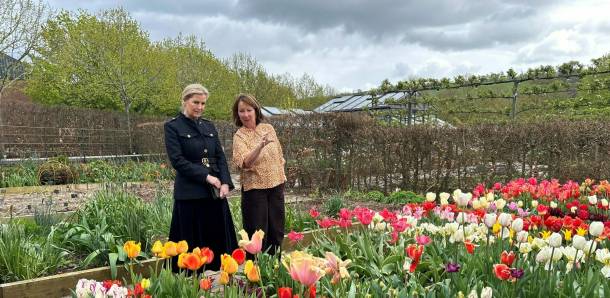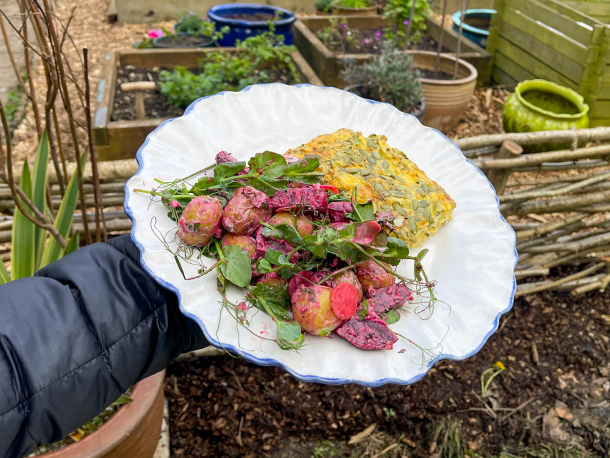Monday 15th April 2024
This spring, grow your herbs using Garden Organic seeds available on special packs on Yeo Valley Organic Spreadable. There are three to collect with special packs of Yeo Valley Organic Spreadable packs including basil, thyme and chive.
How to grow basil
Few plants sum up the aroma of summer more than pungent and peppery basil. This versatile herb is often bought as a plant in the supermarket, but it’s easy to grow at home with a little bit of knowledge and care.
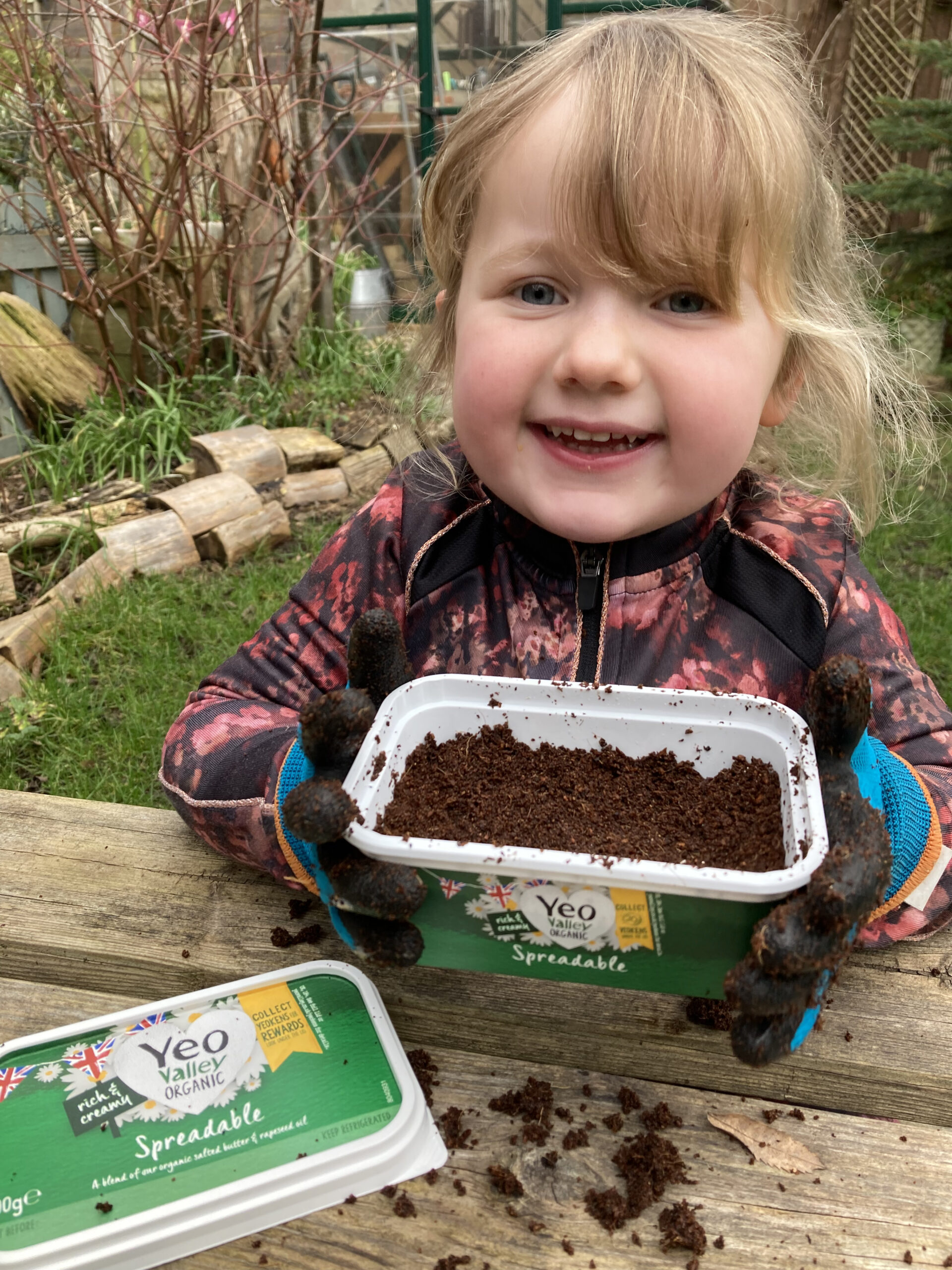
When to sow
Sow the basil seed thinly and cover with a fine layer of compost in your Yeo Valley Organic Spreadable tub from March to May. They require 18C temperatures to germinate so keep them warm and in a bright spot. The distinctive seed leaves (first leaves) are shaped like two capital Ds and should pop up in five to ten days.
When to transplant
Transplant into bigger pots when they’re five to 10cm tall, and they have two to three true leaves. Basil needs to be treated like an annual as it’s not frost hardy. Wait until late May or early June to plant them outdoors, where they can be placed 30cm apart.
Basil likes warmth and sunshine so choose fertile, free-draining soil in a sheltered site, or group together in containers on a sunny patio or balcony. Alternatively, basil can be grown in a warm greenhouse or on a windowsill indoors for most of the year.
When to harvest
Gather fresh basil for your pizzas, pastas and pestos from 12 weeks, from June to September.
Pick young basil leaves from the top of the plant, to encourage new shoots and leaves and delay flowering. It’s good to grow several plants at once, so you can rotate the picking.
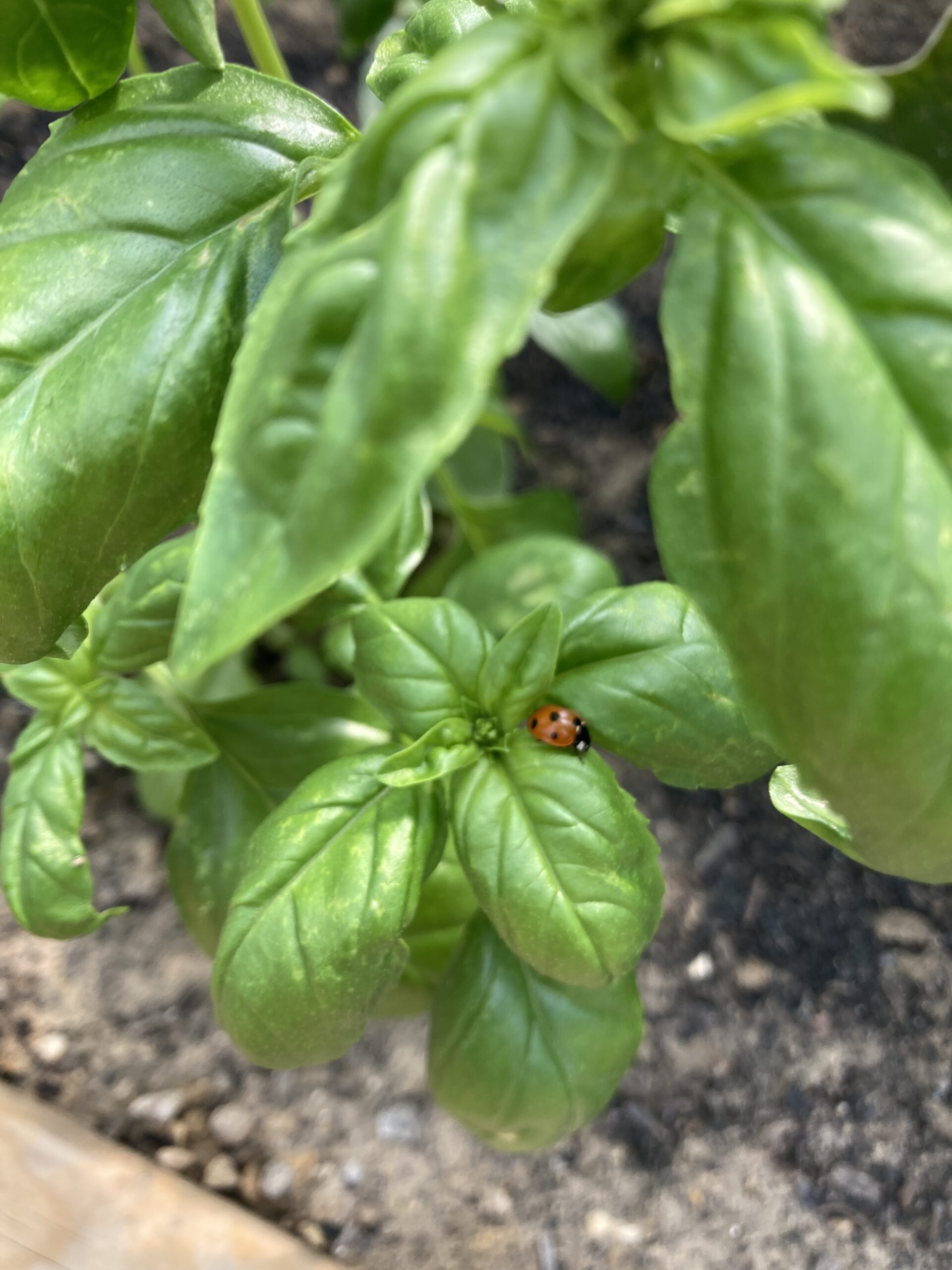
Tips for success
In hot weather, basil will appreciate a water at the base and a dose of liquid comfrey feed.
You can easily take cuttings from basil to grow more plants. These are non-flowering shoots and cut just below a leaf. Take off the lower leaves and pop the cuttings into water, wait for white roots to appear and pot up into small pots of compost.
At the end of the summer allow your basil to flower for the bees.
Pests and diseases
Basil is best grown indoors first so you can protect young seedlings from slugs and snails, which enjoy the tasty young leaves.
Basil hates having wet feet – and can easily get ‘damping off’ disease – so ensure you don’t overwater rows, water in the morning, and keep plants well ventilated.
Seed saving
Basil flowerheads turn brown and black seeds will become visible as the flowers dry. Pop the snipped flower stalks into a paper bag, leave somewhere dry and allow the seed to drop out or simply rub the dried seeds off the plants. Seed will dry well in good ventilation in a week or so. Label and keep stored seed dry and cool – they should be good to sow again for at least a couple of years.
Jargon buster
Annual: These are plants that complete their lifecycle in one season i.e. they germinate, flower and set seed all in one year. Annual plants will need replacing each year, but you can save the seeds of many annual flowers.
Hardy/tender: Hardy plants are those that can survive temperatures below -15C. Frost hardy plants tend to cope with temperatures down to -5C. Tender plants need to remain above 5C.
True leaves: These are the tiny versions of the adult leaves that unfurl above the first seed leaves or cotyledons (coty-lee-dons).
Damping off: A disease caused by a soil-borne fungal infection. It’s particularly prevalent if the seedlings are kept in cool, wet conditions.
For more organic growing advice, head to Garden Organic’s website at gardenorganic.org.uk, where you can also become a member of the charity.


